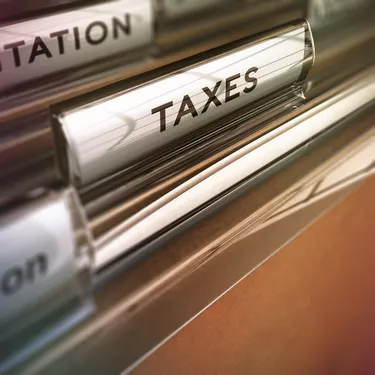
Given the complexity of the tax code, it should come as no surprise that many taxpayers procrastinate when filing their income tax returns. Depending on whether or not you owe tax as a result of your tax return, you may be able to delay filing taxes without facing any penalties.
Deadline
Video of the Day
Normally the tax deadline is April 15 of each year, although the tax deadline for tax year 2010 returns has been moved to April 18. All taxpayers are expected to have their returns in to the IRS by the deadline and, to encourage voluntary compliance, the IRS assesses penalties against taxpayers who do not meet the deadline.
Video of the Day
Consequences
If you owe tax and you wait until next year to file, you will be assessed a "failure to pay" penalty, a "failure to file" penalty, and interest on any unpaid tax. The "failure to file" penalty is 5 percent of the unpaid tax, while the "failure to pay" penalty is ½ of 1 percent of the unpaid tax for as long as it remains unpaid or until the 25 percent maximum penalty is reached. The interest rate is the federal rate (determined quarterly) plus 3 percent. In addition to interest and penalties, the IRS may file a return on your behalf if you fail to do so. Before the IRS can file for you, it sends you a reminder of your responsibility to file. If the IRS files a return for you, it does not give you any of the credits, deductions or exemptions for which you may be eligible, thereby increasing your overall liability.
Statute of Limitations
Although it is true that you can wait until next year to file and not be assessed any penalties if you do not owe tax, it is also true that you could lose your refund if you wait too long to file. This is because the IRS statute of limitations allows taxpayers only three years from the due date of the original return to file and claim a refund.
Considerations
By waiting to file your return, you are allowing the IRS to keep your refund for an additional year, which essentially means that you are giving the IRS an interest-free loan. In addition, you may be wrong about your expected refund if you file next year; you could end up owing because of a computational error or a misunderstanding about your eligibility to claim a credit or deduction.